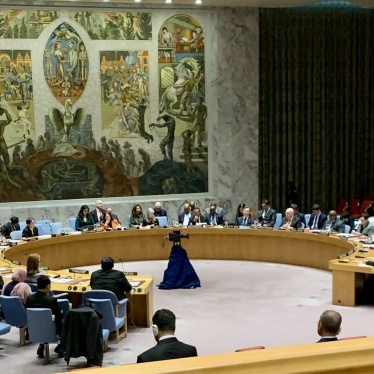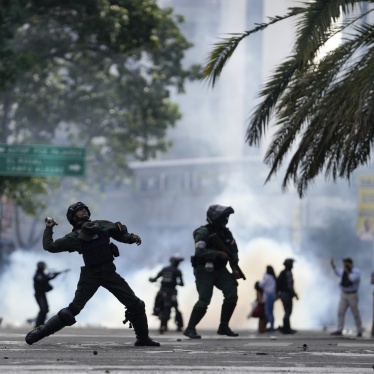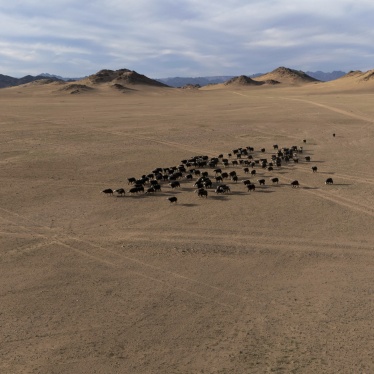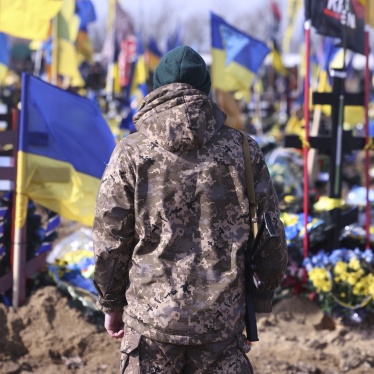06 Sep 2024
To: Permanent Representatives of Member and Observer States of the United Nations Human Rights Council
Dear Excellencies,
We, the undersigned Afghanistan and international human rights and civil society organisations, write to you once again to share our concerns regarding the grave human rights and humanitarian crisis in Afghanistan and to reiterate the urgent need for accountability for gross, widespread and systematic human rights violations and abuses that continue to be committed across Afghanistan, including crimes under international law, some of which may amount to crimes against humanity.
We call on the UN Human Rights Council, at its upcoming 57th regular session to: (1) renew and strengthen with the necessary resources, the mandate of the Special Rapporteur on the situation of human rights in Afghanistan; (2) establish a parallel and complementary independent mechanism to investigate, collect, consolidate, preserve and analyse evidence of human rights violations and abuses and crimes under international law; and (3) ensure continuation of a dedicated space for enhanced interactive dialogue on the situation of women and girls in Afghanistan with meaningful follow-up to the report of the Special Rapporteur on the Taliban’s repression against women and girls. We further urge you to seriously consider the calls for the recognition and codification of gender apartheid as a crime under international law.
This letter, just as in our previous letter shared ahead of the 54th session of the Council in September 2023, is an outcome of consultations with Afghanistan’s civil society and human rights defenders located inside and outside of the country and enjoys broad support from Afghanistan’s civil society.
In the past three years, the Taliban have completely reversed measures previously adopted to enhance the promotion and protection of human rights in Afghanistan. The Taliban, as the de facto authority, have spurned Afghanistan’s international obligations and have continued to introduce arbitrary, unlawful and wide-ranging restrictions on human rights.
With bans on secondary and higher education, employment, freedom of movement, women’s faces and voices in public, and other rights and fundamental freedoms, as well as access to essential services, women and girls are being erased from society. According to the report of the Special Rapporteur on Afghanistan, in the months between June 2023 and March 2024 alone, the de facto authorities issued over 52 new edicts that impose further restrictions the rights of women and girls, effectively consolidating an institutionalised system of gender persecution, which is a crime against humanity under the Rome Statute of the International Criminal Court. According to the Special Rapporteur’s report and the Working Group on discrimination against women and girls, the situation of human rights in Afghanistan with respect to women and girls is tantamount to “an institutionalized framework of gender apartheid”. The UN Assistance Mission in Afghanistan (UNAMA) has documented 1033 instances of use of force by the Ministry for the Propagation of Virtue and the Prevention of Vice (MPVPV) , with a view to implementing arbitrary and unlawful restrictions on the human rights of women and girls. Moreover, women and girls belonging to minority communities and/or with disabilities, and LGBTQI+ people continue to experience multiple layers of discrimination.
Marginalisation and exclusion of religious and ethnic minorities in Afghanistan has been compounded under the Taliban. Religious communities, including Shias, Ismailis, Sikhs and Hindus, are banned from organising or participating in their religious and cultural ceremonies. Amid the deepening humanitarian and economic crises, the Taliban’s restrictions on women’s right to work have obstructed the monitoring of aid deliveries, notably to women-headed households and groups in vulnerable situations. Additionally, threats against minorities, in particular ethnic minorities like Hazaras, are further exacerbated by targeted attacks by armed groups, such as Islamic State of Khorasan Province (ISKP) operating in the country. LGBTQI+ people face compounded exclusion as well, and face unlawful detention, extortion, torture and killing.
All forms of dissent and criticism of the Taliban result in harsh, arbitrary punishment and violent reprisals. Peaceful protestors, in particular women who protest the Taliban’s policies, human rights defenders, civil society activists, journalists, artists, musicians, judges, lawyers, educators, critics, and others continue to be targeted. They have been threatened, arrested, and subjected to arbitrary detention and as well as torture and other ill-treatment. Former government and security officials have been subjected to extrajudicial, arbitrary, and summary killings as well as mass executions and enforced disappearances. The Taliban have also carried out cruel and inhumane punishments including public executions, flogging and other forms of corporal punishment.
Afghanistan’s formerly independent legal and judicial systems have been replaced by a system that is based on the Taliban’s own arbitrary interpretation of religious edicts and rulings, and no longer function in a way that could protect the rights of the people of Afghanistan. As a joint statement by over 28 UN Special Procedure mandates on 14 August 2024 makes clear “avenues for justice within Taliban-controlled Afghanistan [are] virtually non-existent.” This situation is worsened by the fact that the Taliban have prohibited the Special Rapporteur on Afghanistan from accessing the country. The vast majority of crimes under international law and other serious human rights violations from the past, including summary killings and executions, tens of thousands of enforced disappearances, arbitrary detentions, torture and other ill-treatment by the former government, international forces, and armed groups who held power in parts of the country, remain unpunished. All of these violations have been committed with complete impunity, fuelling further cycles of violations and abuses.
In this context, establishing a robust independent international investigative and accountability mechanism, with a mandate commensurate with the gravity and scale of the systematic and widespread violations and abuses of human rights, is necessary to advance justice and accountability in Afghanistan. The mechanism should have a mandate and sufficient financial and technical resources to adequately investigate, collect, consolidate, preserve and analyse evidence, with a view to facilitating future criminal proceedings in national and international courts. Such a mechanism should be designed to advance accountability for past and ongoing violations and abuses of human rights and crimes under international law, including those faced by women and girls and LGBTQI+ people across Afghanistan.
Therefore, we call upon Member and Observer States of the U.N. Human Rights Council, in addition to renewing the crucial mandate of the Special Rapporteur on the situation of human rights in Afghanistan, to establish an independent international mechanism for Afghanistan with a mandate to:
- Investigate all allegations of past and ongoing violations and abuses of international human rights law and international humanitarian law, and international crimes, including the crime against humanity of gender persecution;
- Collect, consolidate, and analyse evidence, and prepare files on past and ongoing violations and abuses of international human rights law and international humanitarian law, including crimes under international law, with due consideration of the gender, child and minority dimensions surrounding such violations and abuses; and systematically record and preserve all information, documentation and evidence, including specific crimes against women and girls, in a manner consistent with international law standards and in view of future legal proceedings and accountability efforts;
- Identify, where possible, the individuals and entities responsible with a view to ensuring they are held accountable;
- Be provided with sufficient financial and technical resources. The mechanism should be staffed with independent international experts, including those with expertise on: international human rights law, international humanitarian law and international criminal law; experts in armed conflict dynamics, with specific knowledge of command structures of armed forces and armed groups; sexual and other gender-based violence; children’s rights; the rights of people with disabilities; video and image verification; and forensic analysis;
- Cooperate with existing international judicial mechanisms, such as the International Criminal Court (ICC), that have a mandate over the situation in Afghanistan, as well as national courts; and,
- Make recommendations to UN entities and bodies, such as the UN Security Council and UN General Assembly, and to UN member states with a view to ending impunity and ensuring accountability, including on access to justice for victims.
Such a mechanism would complement the mandate of the Special Rapporteur and complement and support the ongoing investigation by the ICC’s Office of the Prosecutor into the situation in Afghanistan.
We believe that the establishment of an independent international accountability mechanism for Afghanistan would:
- Strengthen pathways to victim- and survivor-centred justice and accountability in Afghanistan;
- Ensure that serious human rights violations and abuses across the country, including sexual and gender-based crimes, are investigated; and
- Contribute to preventing the recurrence of human rights violations and abuses, and ending the vicious cycles of violence in the country.
We, therefore, urge Member and Observer States of the Council to stand in solidarity with the people of Afghanistan, and ensure all victims, survivors, and their families have credible and realistic prospects of justice and accountability.
Supported by: National Organizations
- Civil Society and Human Rights Network (CSHRN)
- Human Rights Defenders Plus (HRD+)
- Afghanistan Democracy and Development Organization (ADDO)
- Digital Civil Society Institute (Azady)
- Education Defenders Network (EDN)
- Afghan Canadian Civil Society Forum (ACCSF)
- Afghanistan Human Rights Defenders Committee (AHRDC)
- National Movement Against Discrimination (NMAD)
- Afghanistan’s Women Political Participation Network
- Afghanistan Powerful Women Movement
- Afghan Women Educational and Vocational Services Organization
- Women Advocacy Committee
- Feminine Solidarity for Justice Organization
- Afghanistan Women’s Justice Movement
- Women and Children Research and Advocacy
- Afghan Women’s History Transformation Movement
- Civil Society Joint Working Group
- Association of Women in Radio and Television
- Stop Gender Apartheid in Afghanistan
- Afghanistan Victims Survivors Organization
- Campaign for Girl’s Access to Education in Afghanistan
- Public Awareness Time Hour (PATH Organization)
- Mawoud Academy
- Afghan Women News Agency
- Generation Positive (G+)
- Afghanistan Service, Cultural and Rehabilitation Organization (ASCRO)
- Civil Society Development and Growth Organization (CSDGO)
- New-Naweed Weekly
- Shahrvand Social and Legal Research Organization
- Alternative Links for Training and Development
- Not To Rigor Organisation
- Par Cultural Center
- Hamnawa Youth Institution Based on Khulm District- Balkh Province
- Afghan Women Educational and Vocational Services Organization
- Community Relief and Care Organization- CRCO
- Pol non-profit Organisation
- Civil Society and Human Rights Activists Network
- Women Movement for Freedom and Peace
- Afghanistan Women’s Solidarity Movement
- Open Asia
- Development and Support Afghan Women and Children Organization- DSAWCO
- Generation of Peace Society
- Afghanistan Women Media Advocacy Group
- Borderless Amu Movement
- Fatema Foundation
- Afghan Human Rights Defenders in Exile
- PWWC Panjshiryan World Wide Council
- Afghan Women Coordination Umbrella
- Window For Hope
- Afghan Human Rights Defenders in Europe
- Danner Afghanistan For Women Empowerment Organization-DAWEO
- Afghanistan News and Information Network (Changal)
- Justice For All Organization
- Afghanistan Women Leader Movement
- B-BOLAQ
- Terrorism Victims Protection Organization
- Transparent Election Foundation of Afghanistan - TEFA
- Network of Afghan Women in Urban Governance
- Spontaneous Movement of Protesting Women in Afghanistan
- Roshaniya
- BEHESHT
- Hazara Committee, UK
- Yaar.e.V
- Association of Women in Radio and Television (AWRT-K)
- Women’s Movement Towards Freedom (WMTF)
- Afghanistan Victim’s Families Association (AVFA)
- Transitional Justice Coordination Group (TJCJ)
- Afghanistan Human Rights Advocates (AHRA)
- Edmonton Hazara Association (EHA)
- Generation of Peace Society
- Not to Rigor Organization
- Women Movement for Freedom and Peace
- Afghan Women’s Movement for Justice
Supported by: International Organizations
- World Organization Against Torture - OMCT
- Asian Forum for Human Rights and Development (FORUM-ASIA)
- Center for Human Rights Advocacy (CHRA)
- Human Rights Activists Union - HRAU
- International Bar Association’s Human Rights Institute (IBAHRI)
- Human Rights Watch (HRW)
- The Duty Legacy (TDL)
- The Alliance for the Prevention of Atrocity Crimes (APAC)
- Centre for Dialogue and Progress- Geneva – CDP-G
- South Asia Collective (SAC)
- South Asia Justice Campaign (SAJC)
- MADRE
- Freedom Now
- International Service for Human Rights (ISHR)
- Women’s International League for Peace and Freedom (WILPF)
- Amnesty International (AI)
- Global Justice Center (GJC)







